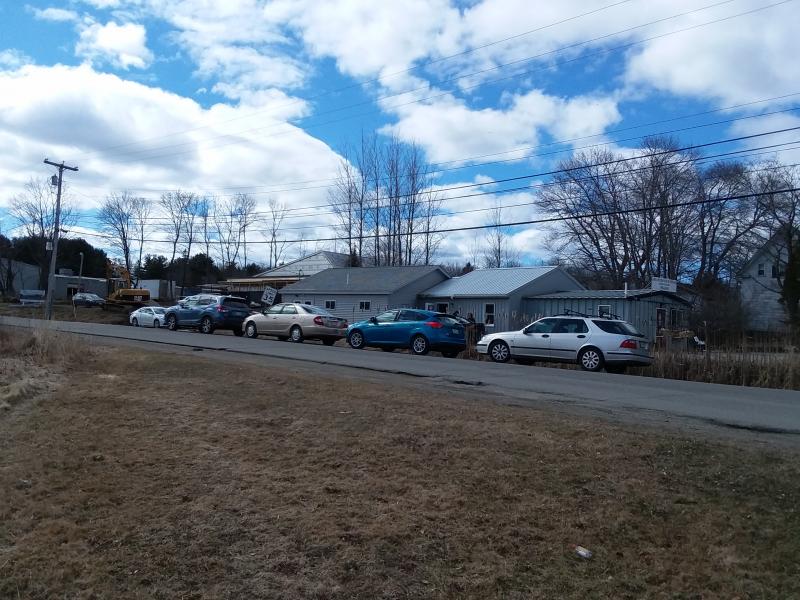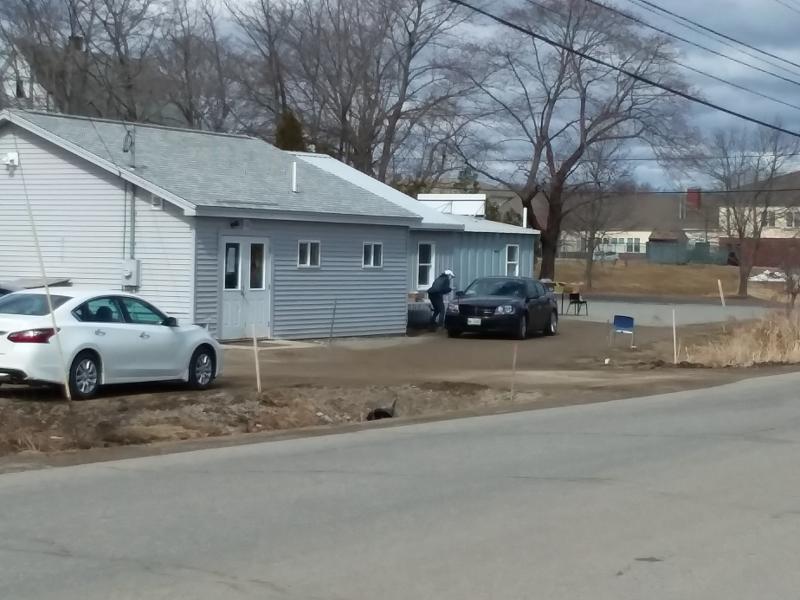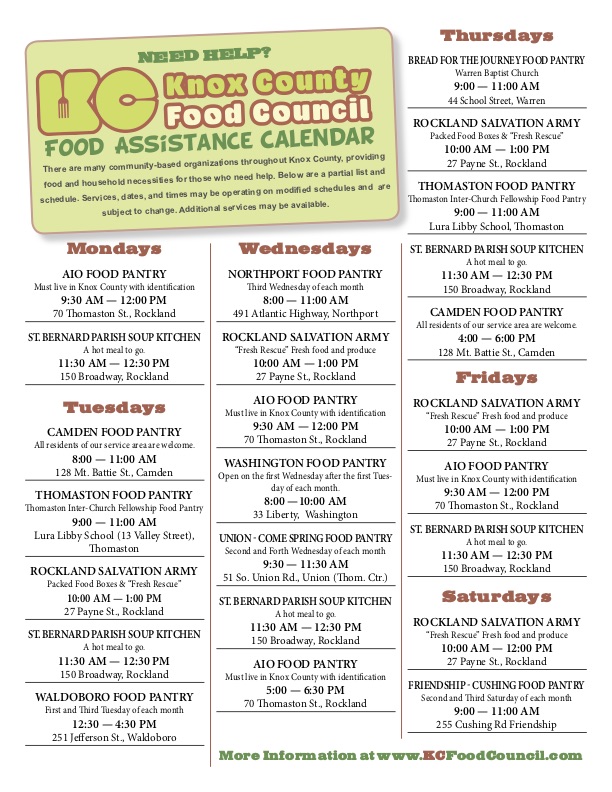Waldo County, Rockland rally to keep food-insecure residents fed during pandemic
MIDCOAST — The Waldo County Emergency Management Agency and the City of Rockland are two local government entities stepping up financially to keep residents fed as COVID-19 creates a greater challenge for those already having a tough time. Money, however, does not entirely resolve issues of supply and demand.
The Waldo County County Commissioners recently authorized the expenditure of $5,000 to purchase bulk, shelf-stable food to be distributed to the public following an increased demand on local food pantries, while some normal supplies of food have been reduced, according to an April 23 Waldo County EMA news release.
The Waldo EMA has been working with local food pantries and representatives from Good Shepherd Food Bank of Maine to coordinate the response to the economic emergency affecting closed local businesses and those out of work. Good Shepherd is a statewide nonprofit working to end the cycle of poverty and insecurity by distributing meals to Mainers in need through partnership with more than 400 local food pantries.
As well, during the April 13 Rockland City Council meeting, councilors voted to make $10,000 accessible to the Area Interfaith Outreach Food Pantry to help with food distribution to Rockland residents. This $10,000 is on top of a previous $10,000 to the Pantry’s fuel assistance program a month ago, also for Rockland residents.
“I’m just really worried that a lot of people are facing actual and real hunger because of the profound loss of income they’re seeing,” said Rockland City Council member Valli Geiger during the April 13 meeting. “I think it’s part of our obligation as a City to make sure that people can at least get basic access to food, and I know that the AIO is struggling to meet those needs.”
AIO went into COVID-19 mode March 16, according to Liz Jenkins, AIO Board president, during an April 17 Zoom interview, along with Knox County Homeless Coalition, on the Points North Institute show “Dirigo Talks.”
By the end of the first week, food-insecure clientele at AIO increased 150%, according to Jenkins. It then stayed steady, yet demand for the AIO backpack program grew, with an increase from 600 recipients in March to 1,200 recipients in April.
The AIO backpack program started in 2015 with the mission of sending a backpack full of food home with food-insecure students each weekend of the academic year with two days of nutritious breakfasts, lunches, dinners, and snacks, as well as ingredients for one meal for the whole family.
At its inception, the program sent food home with 200 Rockland students. It has since tripled in output with expansion to more schools in the region.
AIO volunteers are now driving to Good Shepherd in Auburn to fill their private trucks more often, approximately three times per month, according to Jenkins.
“We [usually] get a Good Shepherd semi-truck to the food pantry in Rockland once a month because of the volume that we order,” she said. “And then we send, usually, one pickup truck mid-month. Now we are sending the truck every week.... a big box truck, for example, we jam that full.”
And then, there’s “the intersection between homelessness and hunger,” she said. “Hunger and homelessness. It just goes hand in hand.”
Serving Knox County, as well as parts of Lincoln and Waldo counties, the Knox County Homeless Coalition, in Rockport, provides services and support to the homeless, recently homeless, and impoverished.
Calls for Homeless Coalition services went from 1-2 per day prior to the COVID-19 shutdown. Since then, the number of calls increased to 3-5 per day.
“I know, in the first couple weeks of the self quarantining – that is what started to really have the calls coming in,” said Becca Gildred, KCHC’s director of development. “Because people were (being) asked to leave from those temporary situations.”
The KCHC has a current clientele roster of approximately 400 individuals, half of whom are currently seeking housing, according to Gildred. The other half take advantage of a year of post-housing support. Only 22 of that 400 (half of whom are children) are able to stay at the Hope House on Old Country Road, in Rockport.
For the rest, with no homeless shelter to reside at, no couches to surf, accessibility to pans, mixing bowls, burners, and refrigerators is nonexistent. Therefore the types of food packaging are important.
“We can’t take a tanker full of milk,” she said. “We need little bottles of milk. It’s unfortunate that our supply chain is not set up for rapid re-purposing of all of this so that we can utilize it in the best way possible.”
For the approximate 200 Knox County families and individuals living in motel rooms or vehicles, all food must be easy to open by children, and any hot meals must be microwavable. For them, one-step mac and cheese, and Lunchables are ideal, according to Jenkins.
But whereas grocery store shelves are swept clean of those types of items, and whereas AIO is not accepting food drives, drop-off donations, or supermarket bulk donations, the chain of supply necessary for these people is limited.
Jenkins recently ordered macaroni and cheese through Amazon and paid a fortune, she said. And, what is available at regular stores is often incompatible to client lifestyles.
One recent client was known to ride a bicycle for his regularly scheduled Pantry time, and was believed to be living in a tent somewhere. For someone who may not even own a can opener, soaking dried beans would never be an option, regardless of the COVID-19 pandemic sweeping the nation, according to Jenkins.
AIO is not currently delivering items to clients, and therefore doesn’t have much need for drivers, though many have offered. The same is true for the Homeless Coalition, though the Coalition is keeping a list of available drivers just in case their regular staff get sick.
“However, if there was food that needed to be picked up....” said Jenkins. “For example, if Sam’s Club in Augusta had food that we could purchase...that was helpful food, I would welcome someone with a Sam’s Club card and truck to go there, but it’s probably unlikely that you’re going to find the food there that we all need back here in the Midcoast.”
“There’s a lot of connection going on here, and there’s a lot of ‘let’s pick a project and get that done,’” said Jenkins.
Projects open to volunteers:
Knox County Food Council, started about a year ago.
This Council is open to anyone who’s growing food, or is in the food system, and needs to get the food to the people who need it. Starting from the ocean and the farms, and coming all the way through the food systems and delivering it through the food pantry. The Council meets once a month, and every corner of Knox County is represented: state and regional leadership, regional leadership, the farms, and community members.
Click here for more information on the Food Council.
Knox County Gleaners
How do we get the lettuce from the farm in Camden to the Knox County Homeless Coalition guests and the AIO food shelves?” said Jenkins.
The Knox County Food Council works to make sure those foods don’t get wasted in the field.
Knox County Providers’ meeting, monthly
All Knox County social services get together
Community investors
Help with gap funding
Reach Sarah Thompson at news@penbaypilot.com
Event Date
Address
United States
































